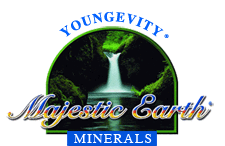

| BIOMETRICS | BEYOND ORGANIC | BLOOD/SUGAR | PROBIOTICS | DETOX | EFA's | |
| MULTI VITAMINS | MINERALS | JUST VITAMINS | INTEGRIS | SHAKES | SOZO PRODUCTS | FREELIFE |

What is the use and function of SELENIUM?
|
|||||||||||||||||||
|
|
|
| babies: birth to 6 months 6 months to 1 year |
10 mcg per day 15 mcg per day |
| children: 1 to 6 years 7 to 10 years |
20 mcg per day 30 mcg per day |
| men and boys: 11 to 14 years 15 to 18 years 19 to 51+ years |
40 mcg per day 50 mcg per day 70 mcg per day |
| women and girls: 11 to 14 years 15 to 18 years 19 to 51+ years |
45 mcg per day 50 mcg per day 55 mcg per day |
| pregnant women | 65 mcg per day |
| nursing mothers | 75 mcg per day |
Food sources:SELENIUM LIVER CANCER
The most important sources in American diets are meats, fish and grains. Additionally, some foods such as Brazil nuts can have relatively high selenium concentrations. Foods of low protein content, including most fruits and vegetables, do not provide substantial amounts of selenium. Food selenium appears to be absorbed with efficiencies of 60-80%; the greatest factor affecting the utilization of food selenium is its chemical form.SELENIUM LIVER CANCER
Recent research: Anti-tumorigenic effects of high levels of selenium have been demonstrated in several animal models. The mechanism(s) of anti-tumorigenic effects of selenium and the possible role of selenium in affecting the risk of human cancer are not clear.
Selenium weathered from rocks under alkaline and oxidizing conditions form selenates, which are highly toxic. Selenite and selenates are produced by soil microorganisms from less soluble forms of selenium. These forms are highly soluble in alkaline soils, thus facilitating uptake of selenium by certain plants. Rainy regions are less likely to experience the problem from naturally occurring selenium because selenium and other salts have been flushed from the soil profile. Selenium does not occur in sedimentary rocks from the pre-Cretaceous period such as those in the northeastern U.S., or in the coastal regions where the soils are formed by coastal deposits or recent volcanic ash. There are also low-selenium areas in Montana and Idaho were the soil is formed from granites and old metamorphic rock; and areas in Arizona and New Mexico where the soil is formed from tertiary volcanic rock (Ullrey 1981)
Nationwide selenium deficiency in livestock is a far more common occurrence than toxicity. More typically selenium is added to livestock feed as a supplement because the element is lacking in the locally grown forage.
For further information:
Burk, R.F., ed. (1994) Selenium in Biology and Human Health. Springer-Verlag, New York, NY
Combs, G.F., Jr. (1994) Essentiality and toxicity of selenium: a critique of the Recommended Dietary Allowances and the Reference Dose. In: Risk Assessment of Essential Elements (Mertz, C., Abernathy, C. & Olin, S.S., eds.), pp. 167-183. International Life Sciences Institute Press, Washington, DC.
FULL TIME SERVICE CENTER
True Health
ORDER HOT LINE TOLL FREE : Phone: (888) 249-4464
MEMBER ID #122901
Authorized Independant
Youngevityy Distributor
Questions
| To Product List |
|
**These statements have not been evaluated by the FDA.
These products are not intended to diagnose, treat, cure or prevent any disease.
Please contact your physician.


 Ultimate Selenium - 90 Capsules #20971
Ultimate Selenium - 90 Capsules #20971
Selenium is one of the most documented and widely studied trace elements known. Numerous studies have shown the importance of selenium supplements to the body. Lifts moods and reduces anxiety. Designed for high absorption Selenium is a strong antioxidant which is thought to protect us against the ravages of free radicals.
Selenium has been found to prevent some cancers by up to 69%! Reduced cancer deaths by 50% in a university study. Increases immune system. Found to increase some immune factors by up to 79%!
![]() Wholesale
$27.95
Wholesale
$27.95
![]() Case (4 Bottles) $99.95
Case (4 Bottles) $99.95
